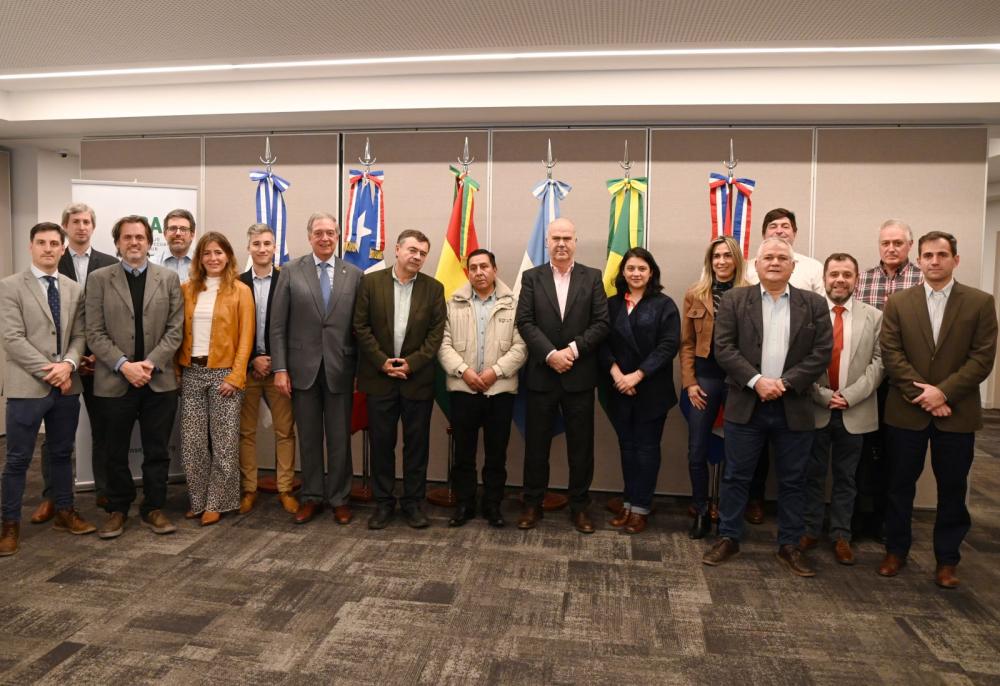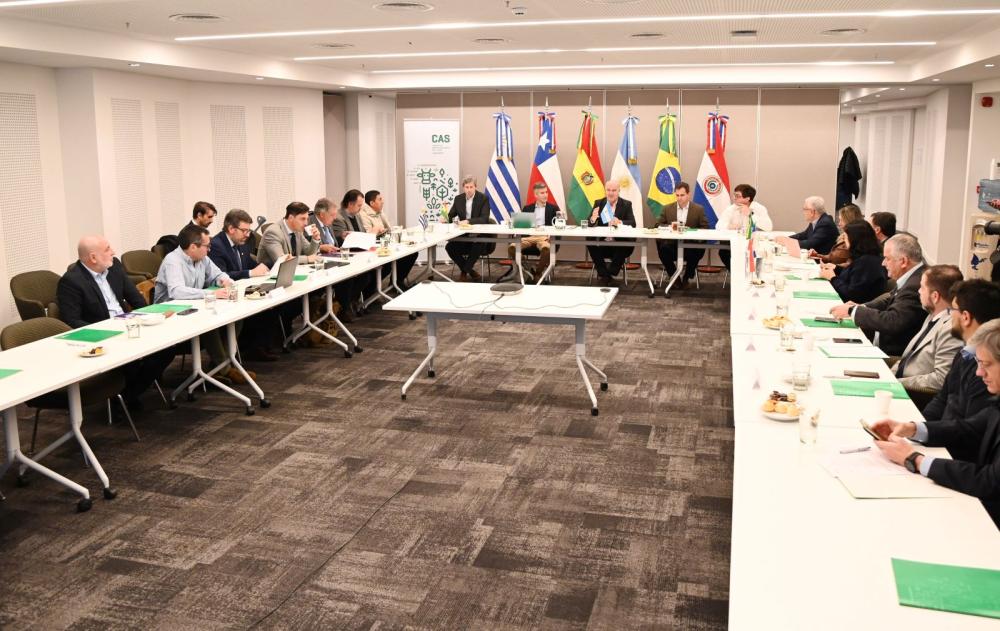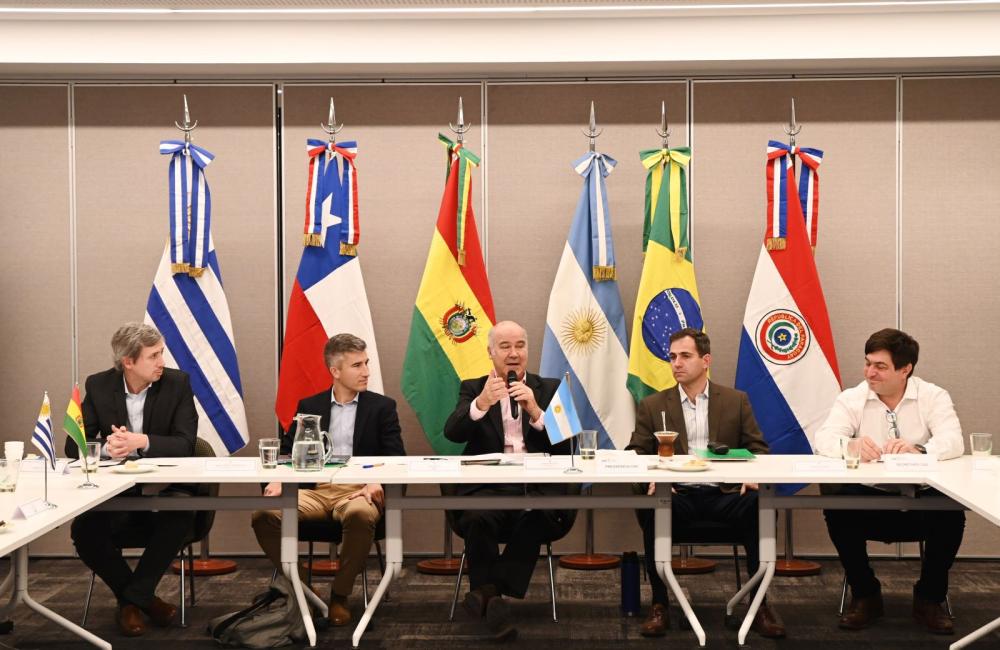Ministers of the Southern Agricultural Council (CAS) state that the European Union Deforestation Regulation could affect agrifood trade and call for postponing its implementation

Buenos Aires, 30 July 2024 (IICA) – The ministers of agriculture of the countries that make up the Southern Agricultural Council (CAS) have asked the European Union (EU) to postpone the implementation of Regulation 1115/2023 on deforestation, scheduled for December 30.
The ministers warned that its entry into force without broader discussion could negatively impact agrifood trade and particularly affect small and medium-scale producers in the region.
The ministers expressed to the European Commission the willingness of the Southern Cone countries of the Americas to work together and engage in a real and effective dialogue through a declaration signed during the 47th regular meeting of the CAS, a forum for consultation and coordination of regional actions on agricultural policy with more than 20 years of experience.
CAS is composed of the agriculture ministers of Argentina, Bolivia, Brazil, Chile, Paraguay, and Uruguay, and its technical secretariat is managed by the Inter-American Institute for Cooperation on Agriculture (IICA).
The meeting was held in Buenos Aires at the venue of the Exposición Rural, a traditional Argentine agricultural show, with the participation of Sergio Iraeta, Secretary of Agriculture, Livestock, and Fisheries of Argentina and pro tempore president of CAS; Esteban Valenzuela, Minister of Agriculture of Chile; Fernando Mattos, Minister of Livestock, Agriculture, and Fisheries of Uruguay; Cleber Soares, Secretary of Innovation, Rural Development, and Irrigation of the Ministry of Agriculture and Livestock of Brazil; César Duarte, Director of Coordination and Project Management of the Ministry of Agriculture and Livestock of Paraguay; and Víctor Hugo Hilari, Director of Production, Livestock, Aquaculture, and Fisheries of Bolivia.
Also participating in the meeting were Gabriel Delgado and Rodrigo Saldías, who manage the technical and administrative secretariat of CAS on behalf of IICA, and Fernando Camargo, IICA Representative in Argentina.

Protectionism on the rise
“The growth of regulations on agrifood trade reflects an increase in protectionism. These are issues that transcend national borders and require a regional approach. We are fully convinced that our production systems are called to be part of the solution to the challenges facing humanity”, said Iraeta, who made his presentation as pro tempore president of CAS and highlighted the value of the role the forum has been playing as a coordinator of policies between different countries.
Minister Valenzuela emphasized the need for further discussion of EU Regulation 1115, which requires those selling primary products to EU countries to certify that the production did not take place on deforested land after 2020. “We must be clear on the need to focus on dialogue and agreements, which is what matters. Collaborative work is key”, he said.
Mattos, for his part, stated that the CAS countries play a fundamental role in the future of a world seeking to ensure food supply. “Productive challenges depend greatly on research and innovation, and that is what needs to be prioritized”, he said.
Hilari assured that for Bolivia, “caring for Mother Earth is fundamental” and stated that it is necessary to discuss the Deforestation Regulation, considering the short time left before its implementation.
González also noted that Paraguay “is following the application of the Regulation very closely” and that its implementation should be postponed.
Cleber Soares also expressed Brazil’s rejection of the EU Regulation and stated that his country would have expected a broader discussion and more cooperation with the EU during the drafting of the regulation.
In the declaration signed by the ministers, they warned that the complexity and costs of the Deforestation Regulation’s mechanisms could exclude small producers from value chains.
They also pointed out that the classification of deforestation and forest degradation risk by countries, which the European Commission plans to carry out, could be incompatible with the obligations assumed before the World Trade Organization (WTO).
The ministers concluded by explaining that CAS countries are leaders in adopting good practices and technologies to improve the sustainability of agricultural production. Furthermore, they have always argued that there are no one-size-fits-all solutions to global problems and that multilateralism and international cooperation should be strengthened.

Risks of antimicrobial use
The ministers of the CAS also drew attention to the need to adopt a scientific approach to the use of antimicrobial drugs in animal production, with the aim of protecting human health. They signed a declaration to that effect, encouraging countries to improve their control systems for antimicrobial use and warned that antimicrobial resistance is a threat to global public health that must be addressed with international cooperation.
A third declaration from the CAS during the Buenos Aires meeting noted that decisions on maximum residue limits of pesticides in food should be based on solid scientific evidence and in accordance with WTO commitments. “Sanitary and phytosanitary measures should not constitute unnecessary barriers to trade”, they stated. “The use of agricultural pesticides is a necessary and relevant tool to ensure food security in CAS countries and the world, protecting the food supply chain at an acceptable cost and avoiding market distortions”.
During the meeting, the ministers heard a presentation on the progress of the sustainable livestock platform, which, with the joint work of IICA and the Inter-American Development Bank (IDB), is being coordinated for the CAS countries. “It is vital that CAS countries develop greenhouse gas emission factors specific to livestock, based on science”, said Brazilian Deputy Minister Cleber Soares.
Representatives from the private sector also participated in the meeting, with the involvement of directors from the Federation of Rural Associations of the Mercosur Region (FARM) and the Confederation of Family Farmer Organizations of the Mercosur Region (COPROFAM).
More information:
Institutional Communication Division.
comunicacion.institucional@iica.int